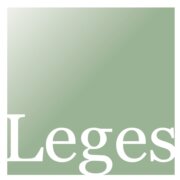Best Bankruptcy & Debt Lawyers in Liège
Share your needs with us, get contacted by law firms.
Free. Takes 2 min.
List of the best lawyers in Liège, Belgium
About Bankruptcy & Debt Law in Liège, Belgium
Bankruptcy and debt law in Liège, Belgium, governs the processes and regulations related to individuals or businesses facing financial difficulties. In Belgium, bankruptcy procedures and debt settlement are regulated by federal laws, primarily overseen by the Commercial Courts. Liège, as a major city in the Walloon Region, has local courts and legal professionals specializing in these matters. Individuals or companies unable to meet their financial obligations may be subject to formal insolvency or restructuring procedures aimed at protecting creditors’ rights and, if possible, enabling a fresh start for the indebted party.
Why You May Need a Lawyer
There are several situations where seeking legal advice in bankruptcy and debt matters becomes essential:
- You are facing threats of legal action or asset seizure from creditors.
- Your business is insolvent and unable to pay its debts.
- You wish to file for personal bankruptcy or collective debt settlement as an individual.
- You have received a summons to appear before the Commercial Court or Civil Court.
- You need to challenge an unfair debt claim or collection practices.
- You require assistance understanding your legal rights and obligations regarding outstanding debts.
- You are seeking to negotiate with creditors for debt restructuring, reduction, or payment plans.
Legal professionals can help protect your assets, limit your liability, ensure compliance with legal procedures, and, where possible, provide alternatives to bankruptcy such as out-of-court settlements.
Local Laws Overview
Bankruptcy and debt laws in Liège are governed by Belgian legislation, particularly the Book XX of the Code of Economic Law. Key aspects include:
- Bankruptcy: Applies mainly to self-employed persons and companies who are unable to pay their debts. It is a judicial procedure overseen by the Commercial Court of Liège.
- Collective Debt Settlement: Intended for private individuals (non-business). This procedure allows over-indebted people to seek a court-approved repayment plan, providing protection from creditors.
- Creditor Rights: Creditors can seek seizure of a debtor’s assets if debts remain unpaid, through enforcement proceedings.
- Restructuring Proceedings: Companies may initiate a judicial reorganization procedure (Procédure de Réorganisation Judiciaire) to renegotiate debts and try to avoid bankruptcy.
- Debt Mediation: Specialized debt mediators, supervised by the court, may be appointed to assist debtors and creditors in reaching amicable solutions.
- Insolvency Registry: Recent legal changes require all insolvency cases to be registered in the official Central Solvency Register of Belgium.
These laws are implemented locally in Liège through the Commercial Court and, for private individuals, via the Justice de Paix or Civil Courts.
Frequently Asked Questions
What is the difference between bankruptcy and collective debt settlement in Belgium?
Bankruptcy is designed for businesses and self-employed individuals, resulting in the liquidation of assets to pay creditors. Collective debt settlement is a protection procedure for private individuals who cannot pay their debts, aiming for a repayment plan and financial rehabilitation.
Who can declare bankruptcy in Liège?
Any business, company, or self-employed individual who has ceased payments and whose credit is shaken can apply for bankruptcy via the Commercial Court of Liège.
Can private individuals be declared bankrupt?
Generally, only self-employed persons (including sole traders) and commercial enterprises can be declared bankrupt. Non-self-employed individuals use the collective debt settlement procedure.
What happens to my assets if I declare bankruptcy?
A court-appointed trustee (curator) manages and sells non-exempt assets to repay creditors. Some assets considered essential for daily life may be protected.
Am I protected from creditors after applying for collective debt settlement?
Once your application is accepted by the court, creditors are generally barred from taking enforcement action or demanding payment outside the court-approved plan.
How long does the collective debt settlement process take?
Debt settlement plans usually last up to five years, although this can vary depending on individual circumstances and court decisions.
Will bankruptcy erase all my debts?
Bankruptcy generally results in the liquidation of assets to repay debts. Some debts may remain, including those not discharged by the court, such as certain fines or child support obligations.
Can I avoid bankruptcy through negotiations with my creditors?
Yes, you can attempt to negotiate directly with creditors for new payment terms or partial debt cancellation. Courts sometimes encourage out-of-court settlements before formal proceedings.
What role does a debt mediator play in Liège?
A debt mediator, appointed by the court, assists over-indebted individuals or companies by negotiating with creditors and helping develop a realistic repayment schedule within the legal framework.
How do I start the bankruptcy or debt settlement procedure?
You or your legal representative must file a petition with the relevant court in Liège. The court will review your financial situation and determine the appropriate procedure.
Additional Resources
Those seeking more information or assistance with bankruptcy and debt issues in Liège can contact or consult:
- The Commercial Court of Liège - Handles business bankruptcies and judicial reorganizations.
- Justice de Paix (Juge de Paix) - Handles collective debt settlement for private individuals.
- Centrale des Solvabilités - Central Solvency Register providing official information on insolvency cases.
- Service de Médiation de Dettes (Debt Mediation Service) - Offers support, guidance, and mediation for over-indebted individuals.
- Bar Association of Liège - Provides directories and referrals for qualified bankruptcy and debt lawyers.
- Public Centers for Social Welfare (CPAS/OCMW) - Offers free initial advice and practical help for people in financial difficulty.
Next Steps
If you are facing financial difficulties or have concerns about bankruptcy and debt in Liège, take the following steps:
- Gather all relevant documents concerning your debts, income, and assets.
- Make a list of your creditors and the amounts owed.
- Contact a local lawyer or accredited mediator specializing in bankruptcy and debt law for a confidential consultation.
- Consider reaching out to free support services such as the Debt Mediation Service or your local CPAS.
- Act promptly, as waiting too long can limit your options and protections.
- Attend all court hearings or meetings as required if you enter formal proceedings.
Facing bankruptcy or debt issues can be stressful, but with the right legal guidance and support, you can navigate your options, protect your rights, and work toward a financial solution.
Lawzana helps you find the best lawyers and law firms in Liège through a curated and pre-screened list of qualified legal professionals. Our platform offers rankings and detailed profiles of attorneys and law firms, allowing you to compare based on practice areas, including Bankruptcy & Debt, experience, and client feedback.
Each profile includes a description of the firm's areas of practice, client reviews, team members and partners, year of establishment, spoken languages, office locations, contact information, social media presence, and any published articles or resources. Most firms on our platform speak English and are experienced in both local and international legal matters.
Get a quote from top-rated law firms in Liège, Belgium — quickly, securely, and without unnecessary hassle.
Disclaimer:
The information provided on this page is for general informational purposes only and does not constitute legal advice. While we strive to ensure the accuracy and relevance of the content, legal information may change over time, and interpretations of the law can vary. You should always consult with a qualified legal professional for advice specific to your situation.
We disclaim all liability for actions taken or not taken based on the content of this page. If you believe any information is incorrect or outdated, please contact us, and we will review and update it where appropriate.
Browse bankruptcy & debt law firms by service in Liège, Belgium
Liège, Belgium Attorneys in related practice areas.










